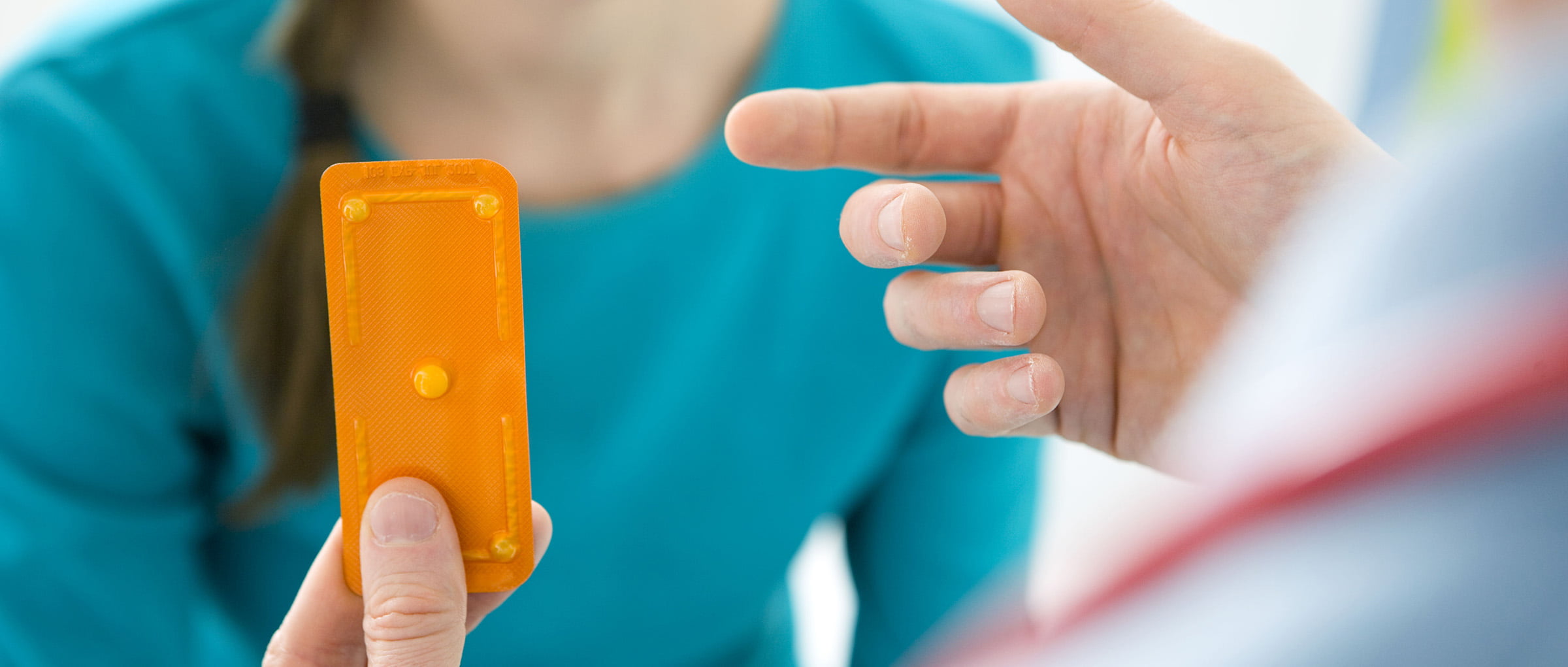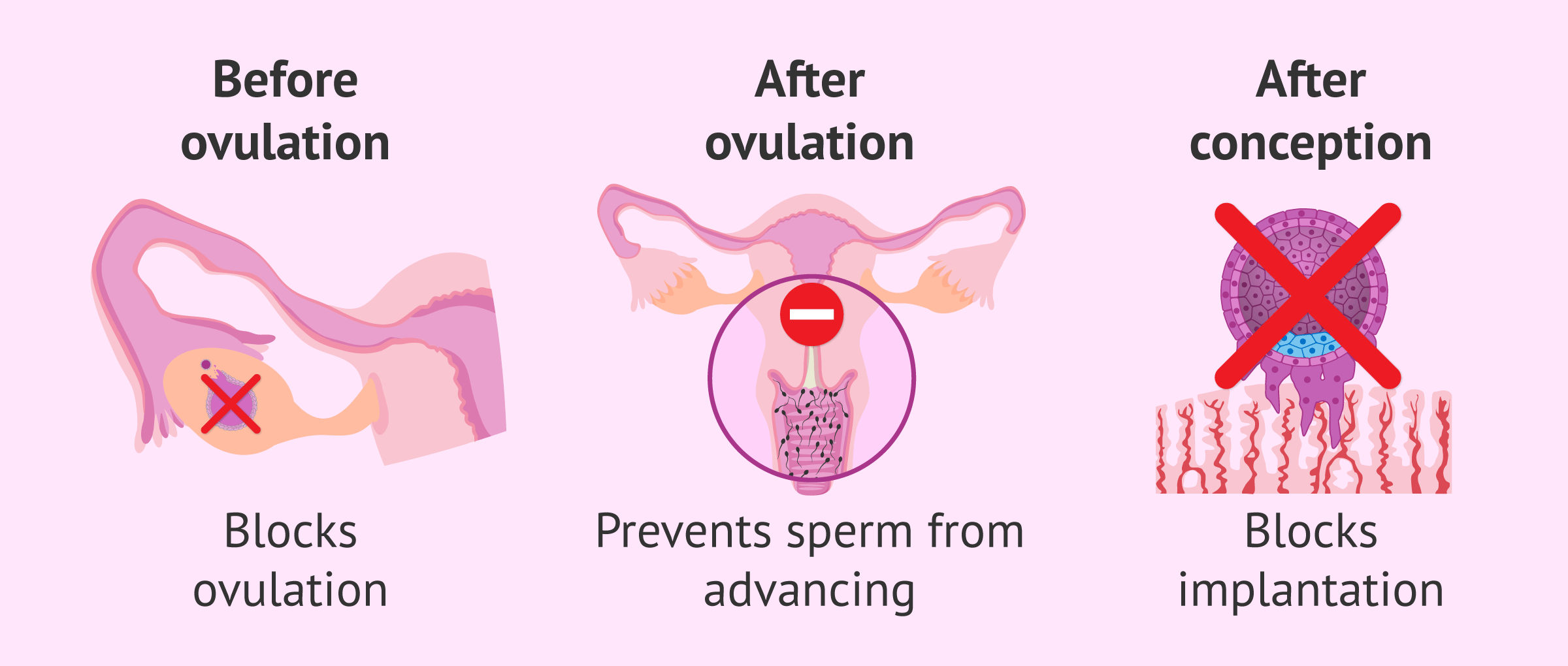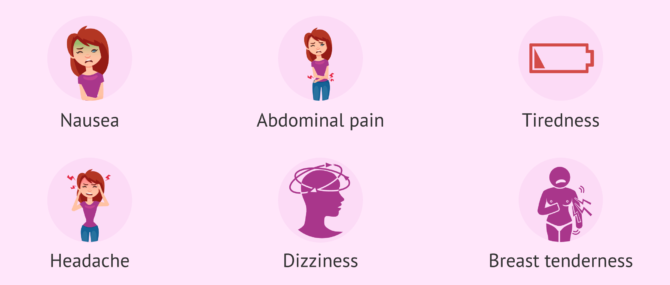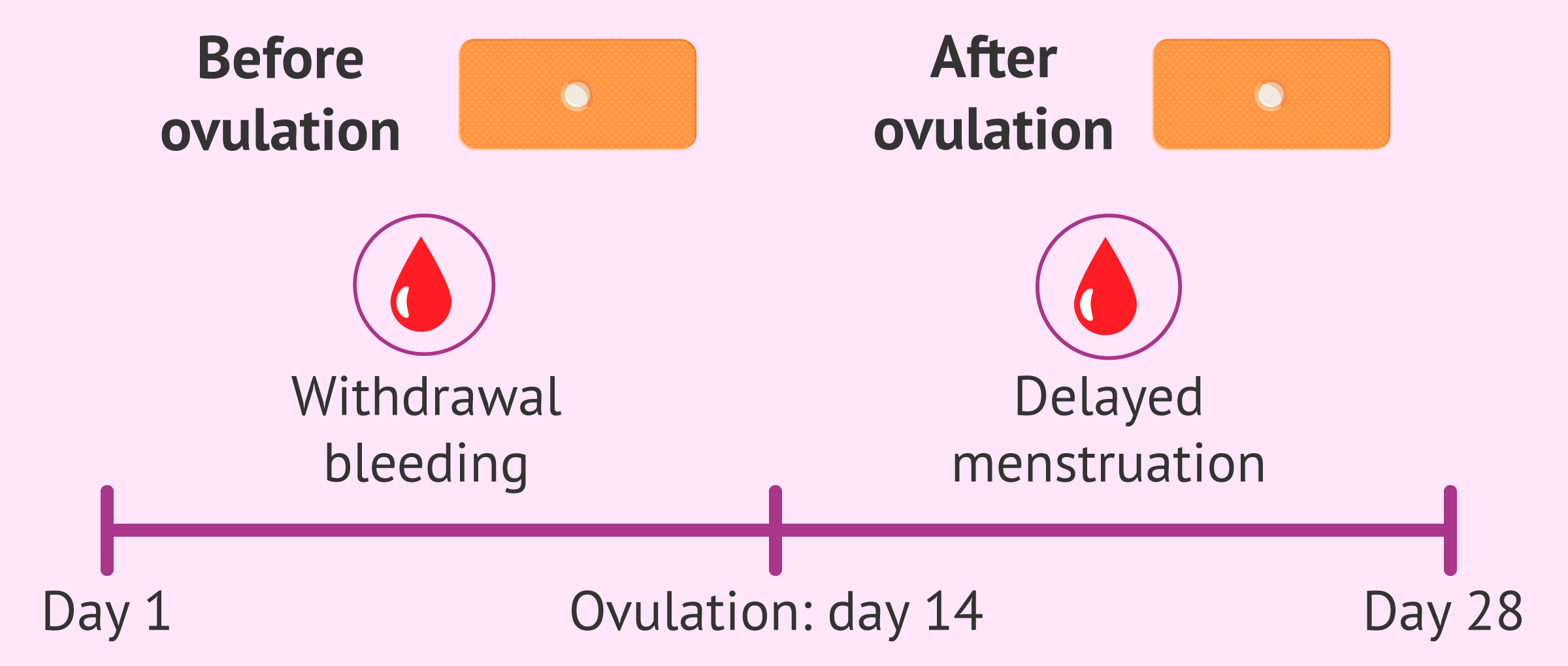The morning-after pill, also known as emergency pill, is an emergency contraceptive method that prevents pregnancy after unprotected or failed sexual intercourse.
The emergency pill should not be used as a regular contraceptive method, since its high hormone content can cause alterations in the menstrual cycle and other unwanted side effects.
Provided below is an index with the 9 points we are going to expand on in this article.
- 1.
- 2.
- 2.1.
- 2.2.
- 3.
- 4.
- 5.
- 6.
- 6.1.
- 6.2.
- 6.3.
- 6.4.
- 6.5.
- 6.6.
- 7.
- 8.
- 9.
What is the emergency pill?
The active ingredient in most morning-after pills is levonorgestrel, a synthetic steroid that mimics the effects of the hormone progesterone.
There are also methods that combine the progestin levonorgestrel and estrogens. On the other hand, we find a novel type of emergency contraception whose main compound is ulipristal acetate.
The emergency pill should be considered as an exceptional method, only in unforeseen situations, such as condom breakage. For regular sexual intercourse, other, more effective methodsare recommended.
It is very important to know that the morning-after pill, although it offers a high degree of effectiveness if taken in the hours following intercourse, is not 100% reliable. Despite taking it, there are many cases of unplanned pregnancy.
It is important for you to keep in mind that hormonal anticonceptives do generelly not protect from STD's.
How does the morning-after pill work?
The emergency pill has three possible mechanisms of action depending on the time of the menstrual cycle in which you are in.
In addition, the speed with which you'll take the pill after sexual intercourse also influences its functioning, since it will depend on whether fertilization has taken place or not.
Below, we are going to discuss the three mechanisms of action of the emergency pill:
- Before ovulation
- progesterone prevents the egg from leaving the ovary if ovulation has not yet taken place.
- After ovulation
- the cervical mucus is altered and thickened to prevent sperm from advancing to the egg. The motility of the fallopian tubes is also altered.
- After conception
- if there has been fertilization, i.e. the sperm is attached to the egg, the pill acts on the endometrium of the uterus to prevent implantation of the embryo.
Therefore, although this method is known worldwide as the morning-after pill, the truth is that its effectiveness will be higher the sooner it is taken.
Percentage of effectiveness of the emergency pill
The emergency pill prevents pregnancy if you take it within 72 hours after unprotected intercourse. However, this effectiveness decreases as the hours pass since intercourse.
During the first 24 hours, the effectiveness rate is 95%. In contrast, within the next 24 to 48 hours, this effectiveness has already been reduced to 85%.
The effectiveness of the emergency pill is highest when taken within 12 hours of sex and decreases over time.
When you take the emergency pil on the third day of the sexual act, i.e. between 48 and 72 hours, it will only be effective in 58% of cases. Finally, postcoital hormonal contraceptives are not as effective in preventing pregnancy as methods used before or during sex, such as condoms.
Morning After Pill and Abortion
The emergency pill is not abortive, it only prevents pregnancy if it has not yet taken place.
If you have taken the emergency pill and you are already pregnant, the pill won't have any effects on your pregnancy and an abortion won't occur.
No negative effect on the fetus has been reported in women who have taken it while pregnant.
In addition, it is important to clarify that the fact of taking the emergency pill, once or several times, does not cause infertility. The hormone content of these pills is the same as all other birth control pills, but with higher doses.
Types of emergency pills
There are several types of morning-after pills depending on the active ingredient they contain. The best known are the following:
- Levonorgestrel
- is a single pill carrying a dose of 1.5 mg levonorgestrel. There is also the format in two doses of 750 mg taken within 12 hours. It usually works up to 72 hours after intercourse.
- Yuzpe
- consists of taking two pills with a dose of 50 µg ethinyl estradiol and 250 µg levonorgestrel. The first pill should be taken within 72 hours of intercourse and the second 12 hours after the first dose. This method is rarely used at present, as it is considered to have a low effectiveness compared to the previous method.
- Ulipristal acetate
- is a non-hormonal contraceptive, as it is a selective modulator of progesterone receptors that helps prevent unwanted pregnancy. It was authorized in Europe in 2009 and has a higher efficacy than levonorgestrel.
In all cases, effectiveness is greater the early it is taken in a risky sexual intercourse. In other words, the more time has passed since unprotected sexual intercourse, the smaller the effect of the emergency pill.
Side effects of the emergency pill
You may have following short-term side effects from taking the emergency pill:
- Nausea
- Vomiting
- Abdominal pain
- Fatigue
- Headache
- Dizziness
- Sensitive breasts
These symptoms are usually mild and go away within a day or two after having taken the pill.
Also, alterations of the menstrual cycle are common when you take the emergency pill. These alterations depend on the time of the menstrual cycle at which it is taken:
- Before ovulation
- the high dose of levonorgestrel will induce deprivation bleeding, usually within a few days of taking the pill.
- After ovulation
- it is possible that the luteal phase of the menstrual cycle will lengthen, with the consequent delay of menstruation.
The effectiveness of the emergency pill is confirmed once your menstruation begins. Should your menstruation be delayed and you have been waiting for more than two or three weeks for your period to start, we recommend that you carry out a pregnancy test or that you consult a doctor to evaluate a possible failure of the emergency pill.
In any case, these alterations caused by hormonal imbalance only affect the menstrual cycle in which you took the pill and not subsequent cycles.
Names and prices
You can purchase the morning-after pill at many family planning or health department clinics. The price of the morning-after pill depends, firstly, on the type and, secondly, on the trademark. Plan B one-Step normally is about 50$. Other pills like Take Action or My Way cost less, ranging around 15-45.
However, there are also emergency pills free of charge like Levonell. They are available in most pharamcies and from your familiy doctor.
FAQs from users
What is the active ingredient of the morning-after pill?
The active ingredient of the post-coital pill is levonorgestrel. It is important to take it within 72 hours after unprotected intercourse. It is available in pharmacies without prescription.
Can I have unprotected sex after taking the morning-after-pill?
There are some people who believe that once the emergency pill is taken, it is possible to have more unprotected sex for a while. It is necessary to keep in mind that the effect of the emergency pill lasts between eleven and fifteen hours. Once eighteen hours have passed, the pill has already been removed from the body and will not protect against an unwanted pregnancy. Therefore, it is advisable to use another barrier contraceptive method if the emergency pill has been taken before.
Is it possible to make a homemade morning-after pill?
Since the emergency pill contains the same hormones as oral contraceptives, it is possible to take several of these pills to mimic the emergency pill effect. The problem is that the exact hormone dose you take using this method is not known and side effects may be greater. Therefore, we do not recommend using this form of contraception at all.
Can I take the morning-after pill if I am taking daily oral contraceptives?
Yes, one of the indications for taking the morning-after-pill is to have forgotten one of the contraceptive pills for a period of more than 24 hours and to have had unprotected sexual intercourse.
It is very important to keep an exhaustive control of the oral contraceptives so as not to forget any dose.
Is it possible to take the morning-after pill twice in a month?
It is not recommended to take the morning-after-pill twice in a row, since the high hormonal content that this entails can cause a great alteration of the menstrual cycle. It should be noted that the morning-after pill is only an emergency method for exceptional cases. Therefore, when you have already taken the pill in a month, it is important that you use a condom in subsequent sexual relations so that you do not have to resort to this method again.
Can the emergency pill be taken before intercourse?
No. This method of contraception should not be used as a regular method, but only in emergency situations.
Therefore, it would not be useful to take the morning-after pill before sexual intercourse. The general recommendation is to administer the emergency pill within 24-48 hours of unprotected sex in order for it to be effective.
Suggested for you
The morning-after pill is a contraceptive method only for emergencies, i.e. when there has been a mishap during sexual intercourse and there is a risk of pregnancy. Under no circumstances should it be used in a normal way. Therefore, we recommend reading the following post to avoid an unwanted pregnancy: Contraceptive methods.
If, once you have taken the morning-after pill, there is a considerable delay in menstruation, it is advisable to do a pregnancy test to get out of doubt. If you are interested in reading more about this, you can click on the following link: When should you take a pregnancy test?
We make a great effort to provide you with the highest quality information.
🙏 Please share this article if you liked it. 💜💜 You help us continue!
References
Christina Vrettakos, Tushar Bajaj. Levonorgestrel. StatPearls [Internet]. Treasure Island (FL): StatPearls Publishing; 2022 Jan (Ver)
David K Turok, Alexandra Gero, Rebecca G Simmons, Jennifer E Kaiser, Gregory J Stoddard, Corinne D Sexsmith, Lori M Gawron, Jessica N Sanders. Levonorgestrel vs. Copper Intrauterine Devices for Emergency Contraception. N Engl J Med. 2021 Jan 28;384(4):335-344 (Ver)
Khai Tran, Aleksandra Grobelna. Ulipristal versus Levonorgestrel for Emergency Contraception: A Review of Comparative Cost-Effectiveness (Ver)
M Endler, Rhw Li, K Gemzell Danielsson. Effect of levonorgestrel emergency contraception on implantation and fertility: A review. Contraception. 2022 May;109:8-18. doi: 10.1016/j.contraception.2022.01.006 (Ver)
FAQs from users: 'What is the active ingredient of the morning-after pill?', 'Can I have unprotected sex after taking the morning-after-pill?', 'Is it possible to make a homemade morning-after pill?', 'Can I take the morning-after pill if I am taking daily oral contraceptives?', 'Is it possible to take the morning-after pill twice in a month?' and 'Can the emergency pill be taken before intercourse?'.









Is the morning-after-pill sold over the counter or do I need a prescription??? If so, what should I do if I had unprotected sex on a sunday and no doctor is open??
Hello Beverly,
Depending on which country you live in, there is no prescription needed. If you are a U.S resident for example, you can get pills like Plan B over the counter.
Hope this helps,
Best wishes